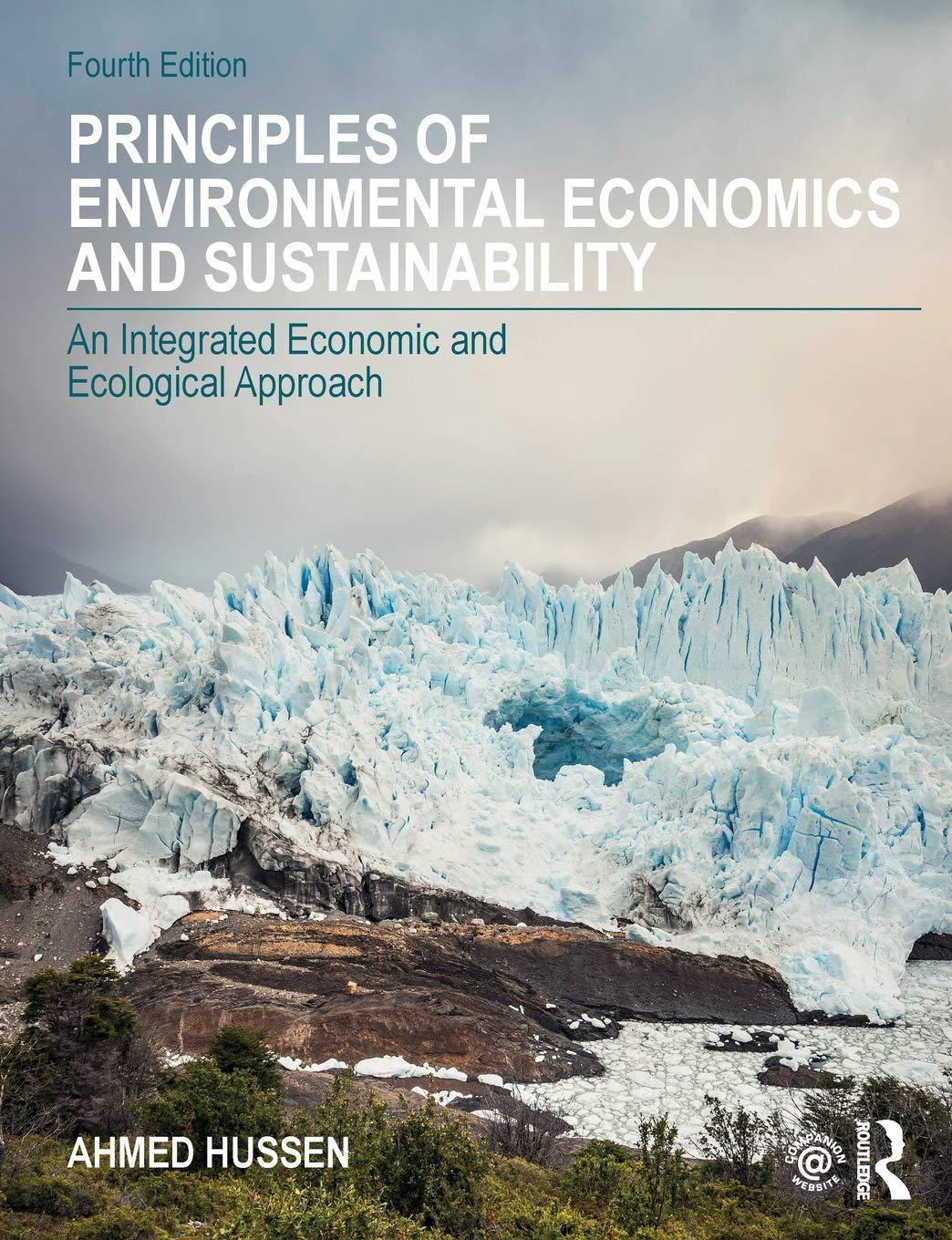Suppose the world government through a United Nations-sponsored summit reached a binding agreement to designate existing tropical
Question:
Suppose the world government through a United Nations-sponsored summit reached a binding agreement to designate existing tropical forest areas as critical natural (ecological) capital. At the same time, to "preserve" this critical ecological asset, it was agreed to provide \(\$ 1,500\) for each household (family) living in these designated areas.
a) What kind of sustainability rule is adopted at this summit? Explain.
b) Do you think this kind of agreement would be durable? If your answer is no, enumerate the various reasons why you may think this is not workable.
c) Regardless of your answer to part (b), can you make a case for any country, such as Brazil, to be compensated for any effort they make to preserve their forested areas? Are you making your case on economic or ethical bases, or both?
d) One of the most prevalent features of environmental sustainability is the attempt to explicitly consider "intergenerational equity." However, this consideration falls into the realm of ethics. If one accepts the belief that "ethical standards cannot be legislated," then setting sustainable rules designed to protect future generations would have no legal basis and, as such, their applicability would remain dubious. Provide your thoughtful comments.
Step by Step Answer:

Principles Of Environmental Economics And Sustainability
ISBN: 9780815363545
4th Edition
Authors: Ahmed Hussen





